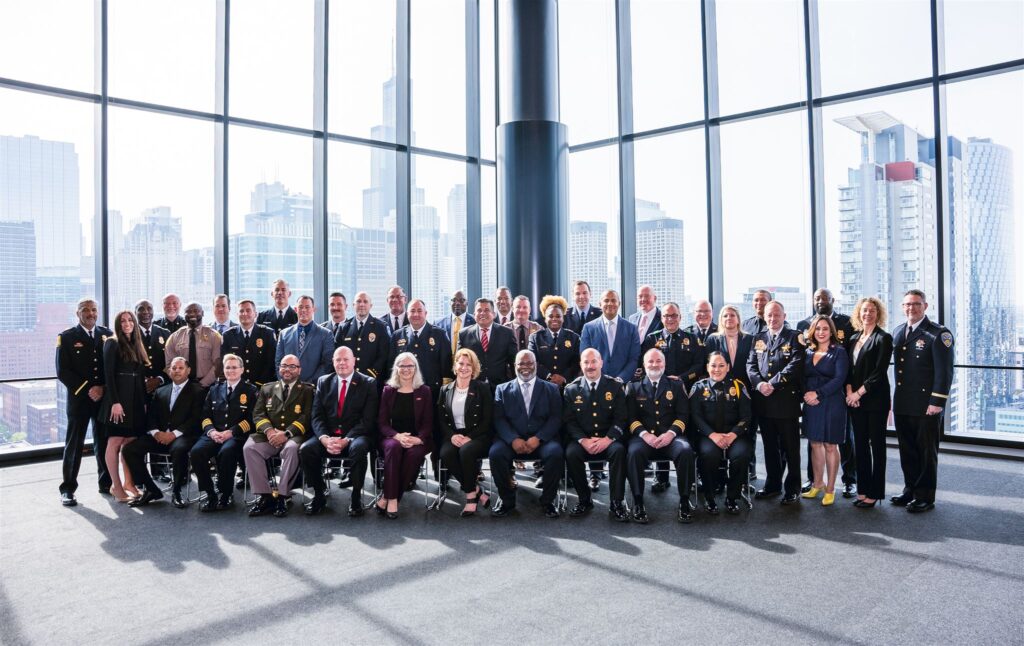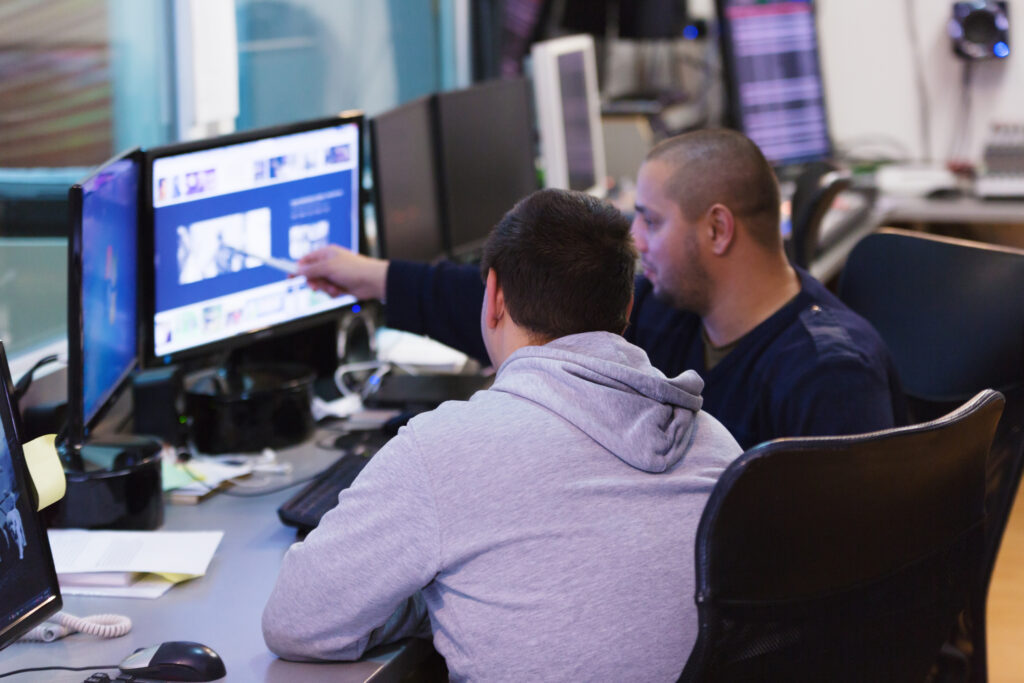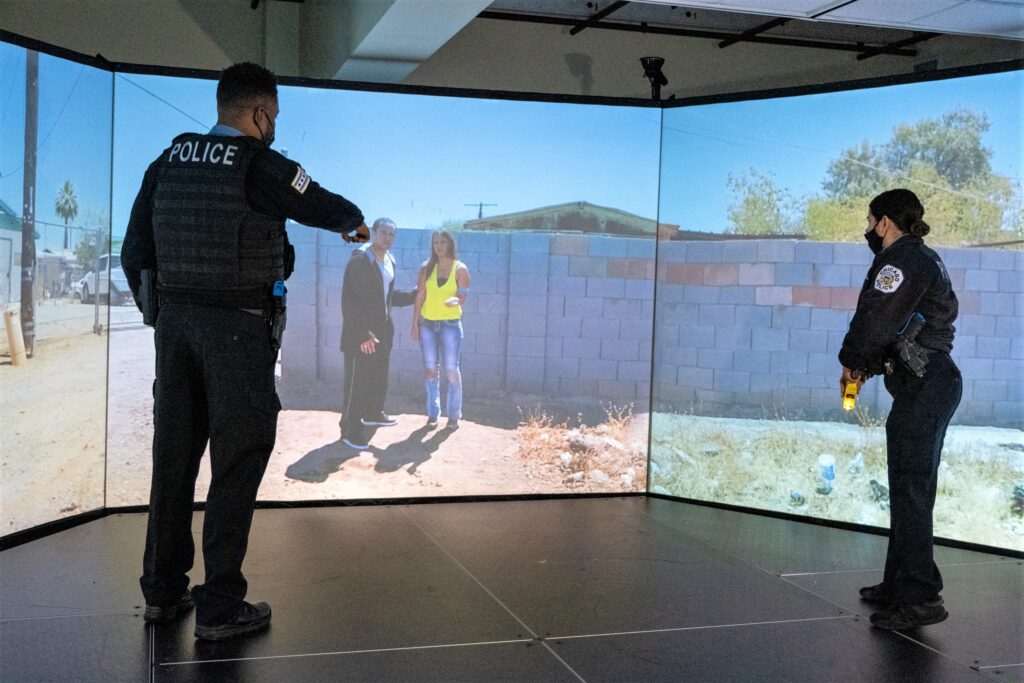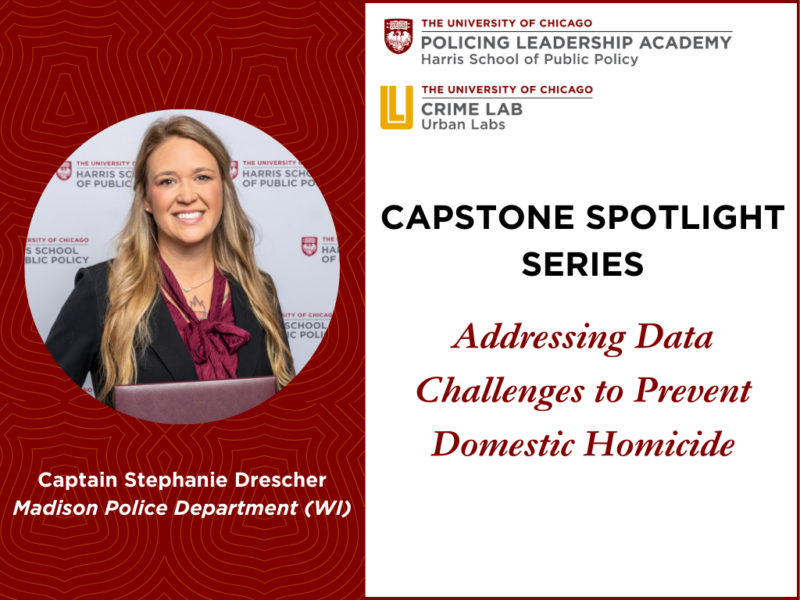Policing
If we want to address America’s gun violence epidemic and save lives today, fair and effective policing is essential. But for too many communities, we are failing to deliver that kind of policing.
While the homicide rate has decreased nationwide since its historic high in the 1990s, many of America’s most violent neighborhoods are experiencing higher rates of gun violence than ever before. This gun violence has exacerbated the safety gap in American cities and taken a devastating toll on communities of color. If we want to address America’s gun violence epidemic and save lives today, fair and effective policing is essential. But for too many communities, we are failing to deliver that kind of policing.
The Crime Lab works directly with police agencies and experts to evaluate interventions to improve officer training, strengthen department management, narrowly focus violence reduction efforts, and rebuild police-community relationships to make policing more fair and effective.
Our research found that when police department leadership changes, rates of violent crime and police use of force can drop at least 20-35% – proving that management matters.
Police officers who completed Sit-D, a training program designed and evaluated by the Crime Lab, engaged in 22% fewer uses of force for months after the training.
Policing Leadership Academy
The Policing Leadership Academy (PLA) is designed to increase safety and fairness in America’s most violent neighborhoods.

Officer Support System (OSS)
The Crime Lab partnered with the Chicago Police Department (CPD) to develop the Officer Support System (OSS), a next-generation, data-driven early intervention system to promote officers’ long-term mental health and wellness.

Situational Decision-Making (Sit-D)
The Crime Lab and the Chicago Police Department (CPD) partnered to create and evaluate a behavioral science-informed training that helps improve officer decision-making in ambiguous, high-stress situations.

Workforce Allocation Analysis
The Workforce Allocation (WFA) Analysis examined where personnel resources at the Chicago Police Department are allocated to improve efficiency, equity, and transparency in patrol staffing.


NBER Working Paper: Predicting Police Misconduct
This paper outlines the results of research on over a decade of Chicago Police Department data that shows it is possible to predict risk of on-duty and off-duty misconduct, allowing police departments to prioritize training and supportive resources.

Webinar- Situational Decision-Making: A New Training to Improve Policing
The Crime Lab hosted a webinar on the findings of our recently released study, A Cognitive View of Policing, which evaluated a pilot of the Situational Decision-Making (Sit-D) police training program.

NBER Working Paper: A Cognitive View of Policing
Read the working paper published by the National Bureau of Economic Research.

NBER Working Paper: Body-Worn Cameras in Policing: Benefits and Costs
This working paper dives into what we know about the benefits of body worn cameras and how those benefits
compare to the costs of this new technology.
Latest Updates
Addressing Data Challenges to Prevent Domestic Homicide
Stephanie Drescher is the Operations Captain, Executive Section at the Madison (WI) Police Department and a graduate of the 2023 inaugural cohort of the University of Chicago Crime Lab’s Policing Leadership Academy (PLA). Our Crime Lab team spoke with Captain Drescher to learn how her experience in the PLA has shaped her work at her home department.

Improving the quality of life in downtown Knoxville
Captain Sammy Shaffer is the Commanding Officer of the recently created Central District in the Knoxville Police Department and a graduate of the 2023 inaugural cohort of The University of Chicago Crime Lab’s Policing Leadership Academy (PLA). Our Crime Lab team chatted with Captain Shaffer earlier this year to hear more about how his experience with the PLA has shaped his work at his home department.

Chicago CEOs Raise $100 Million to Fight Crime After Bloody Days
Bloomberg’s Isis Almeida and Miranda Davis cite Crime Lab analysis of data on shootings in Chicago during the summer months, which account for more than one-third of the city’s shootings every year.

